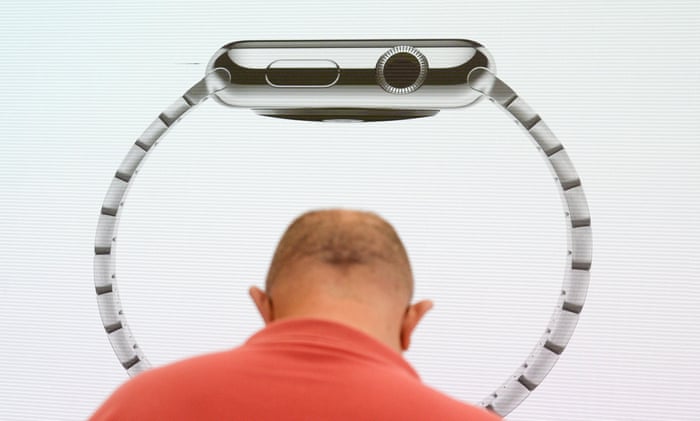Apple has had to cast off more than three hundred malware-inflamed apps from its app shop after its developer gear’s tainted version brought about some Chinese apps leaking users’ private records to hackers. On Sunday night, the company showed that…
Apple has had to cast off more than three hundred malware-inflamed apps from its app shop after its developer gear’s tainted version brought about some Chinese apps leaking users’ private records to hackers.
On Sunday night, the company showed that it became doing away with the apps after several cybersecurity firms suggested locating a malicious program dubbed “XcodeGhost” that become embedded in hundreds of valid apps.

The primary said the case of large numbers of malicious software program programs making their manner past Apple’s stringent app review process. Before this assault, a total of simply give malicious apps had ever been discovered within the app keep, in line with Palo Alto Networks’ cybersecurity company.
Apple stated the hackers embedded the malicious code in these apps via convincing builders of valid software to use a tainted, counterfeit model of Apple’s software program to create iOS and Mac apps called Xcode.
“We’ve eliminated the apps from the app save that we recognize have been created with this counterfeit software program,” Apple spokeswoman Christine Monaghan said in an email. “We are running with the builders to ensure they’re the usage of the right version of Xcode to rebuild their apps.“
She no longer said what steps iPhone and iPad customers should take to decide whether their devices were inflamed.
The inflamed version of Xcode achieved its spread because of a quirk of Chinese net filtering. Due to the country’s large censorship of the web, connections to servers positioned worldwide are extensively slower than those located within China. That results in Chinese internet users regularly looking for an opportunity domestic source for massive downloads.
RELATED ARTICLES :
- Pai keeping an open mind on mobile consolidation
- Apple revises its arguable guidelines on template-based total apps.
- One in three people ready to ditch cars for apps
- Apple Reportedly Facing Trouble Over Tipping on Chinese Apps
- Reddit app update brings extra of the internet site to cellular.
The ultra-modern model of Apple’s developer tools, Xcode 7.1, is more than 4GB in length, main to many Chinese builders downloading variations hosted elsewhere. Someones the variations were infected with XcodeGhost, which inserted the privateness-busting code into the apps. The mum or dad understands that some builders may also have had to disable Gatekeeper, Apple’s very own protection software program, as a way to run the infected version of Xcode.
Ryan Olson, director of hazard intelligence at Palo Alto Networks, said the malware had restrained capability. His company had exposed no examples of records theft or different harm because of the assault.
However, he stated it turned into “a pretty massive deal” because it confirmed that the app keep can be compromised if hackers inflamed machines of software program developers writing valid apps. Other attackers may reproduction that technique, which’s hard to protect in opposition to, he stated.
“Builders are now a big goal,” he added.
Researchers said infected apps covered Tencent Holdings’ popular cellular chat app WeChat, automobile-hailing app Didi Kuaidi and a music app from net portal NetEase. Palo Alto Networks published a listing of 39 of the affected apps, at the same time as Dutch safety firm Fox-IT added its personal findings to the list.
A few apps named the two firms to share a call with popular apps used outside China but look like deliberately mis-titled variations of the apps meant to coin in on incorrect downloads.
Chinese protection firm Qihoo360 era said on its weblog that it had uncovered 344 apps tainted with XcodeGhost.
Tencent stated on its official WeChat blog that the security flaw affects WeChat 6.2.5, an old model of its popular chatting app and that newer versions have been unaffected. Initial research showed there had been no statistics theft or leakage of personal data, the company stated.
Apple declined to say how many apps it had exposed and did not offer a list of affected apps or information about what number of customers had downloaded them.
Popular
-

-

Pimp my browser: how to turn Firefox into a blogging machine
Firefox’s wealthy upload-on ecosystem permits us to bend the browser…
1789 0 -

E3’s PC Gaming Show returns for a third year in 2017
The Pc Gaming Display, an Folk Fest occasion focused on the…
1779 0 -

How esports is disrupting the sports activitiesindustry
Something is going on in the sports activities enterprise. Live…
1746 0 -

Donald Trump has no idea what health insurance costs
“In a short time period,” President Trump these days informed…
2393 0
Latest News
Uber today found out its new app: Freight, a spin-off of the popular trip-sharing carrier geared toward lengthy-haul truckers. If…





















